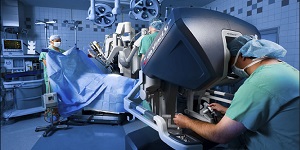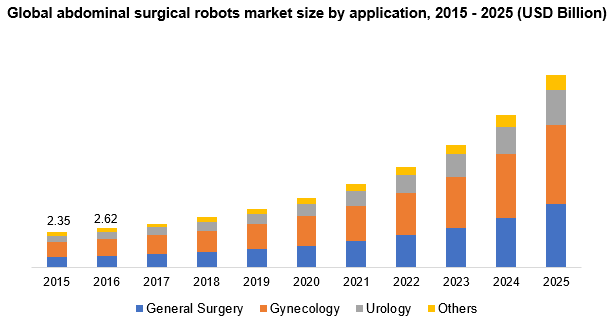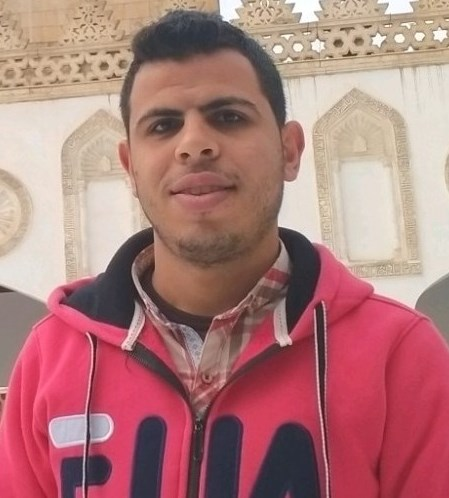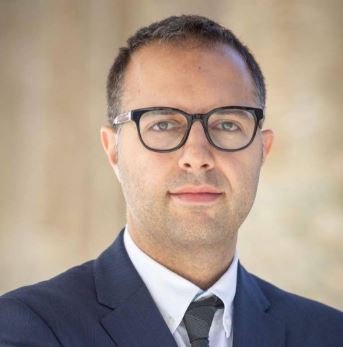
Robotic Surgery 2020

Theme: The Evolution of Robotic Surgery: Surgical and Anaesthetic aspects
Webinar on Robotic Surgery and Anaesthesia will be hosted on September 11, 2020 as per the timings of London, United Kingdom (GMT+1). Panel of speakers will be delivering their presentations on their recent research related to Robotic Surgery and Anaesthesia. Current state of knowledge, its impact on future will be discussed in detailed. Meetings International invites all experts to be part this webinar series and make it a perfect platform for knowledge sharing and networking.
In view of the recent COVID-19 pandemic and subsequent travel bans by many nations, Webinar on Robotic Surgery and Anaesthesia is going to be held online on September 10, 2020 at 10:00 am (GMT+1). We invite you to join the global event that impacts the advancements and technology trends in Surgery. The theme of the webinar is “The Evolution of Robotic Surgery: Surgical and Anaesthetic Aspects”. Robotic Surgery webinar will discuss the latest research outcomes and technological advancements in the field bringing together leading surgeons, physicians, research scholars to exchange their views on critical aspects of Surgery research. This online webinar is designed in a way to provide an exclusive platform for new researchers and scholars to present and discuss the most recent innovations, trends and practical challenges encountered, and the solutions adopted in the field of Robotic Surgery. Robotic Surgery webinar is focused to address the constant effort being made by scientists to improve the existing and inventing novel technologies for the future.
Robotic surgery is a type of minimally invasive surgery. “Minimally invasive” means that instead of operating on patients through large incisions, we use miniaturized surgical instruments that fit through a series of quarter-inch incisions. Cancer Sciences and Robotic Systems are very closely associated as the robotic technology enables the radiation oncologists to deliver high doses of radiation with pinpoint accuracy to a broad range of tumors throughout the body, including the lungs, prostate and pancreas.
When performing surgery with the da Vinci Si—the world’s most advanced surgical robot—these miniaturized instruments are mounted on three separate robotic arms, allowing the surgeon maximum range of motion and precision. The da Vinci’s fourth arm contains a magnified high-definition 3-D camera that guides the surgeon during the procedure. The system’s sophisticated software allows for tracking of the tumor and the ability to continually adjust the radiation treatment to account for patient or tumor movement.
Urology Robotic Surgery
The urologists bid minimally invasive robotic-assisted surgery for several urological diseases including prostate cancer, kidney obstruction, and bladder reconstruction. Robotic-assisted surgery provides parallel benefits in children with a short period of time and improved therapies. Robotic surgery enables urological surgeons to perform more precise operation than conventional surgery.
- Prostatectomy
- Partial and Total Nephrectomy
- Cyst Removal
- Cystectomy
- Pyeloplasty
- Ureteral Implantation
Minimally Invasive Surgery uses tiny cuts in the skin — or no cuts at all — rather than the large cuts often needed in traditional surgery.There are many kinds of minimally invasive surgery. Each involves the surgeon using an endoscope . This is a thin tube with a light and tiny video camera on the end. The endoscope lets the surgeon see inside the body and use very small surgical tools in the area.
Clinical Applications of Robotic Surgery
Robotic surgery has successfully addressed the limitations of traditional laparoscopic and thoracoscopic surgery,thus allowing completion of complex and advanced surgical procedures with increased precision in a minimally invasive approach. In contrast to the awkward positions that are required for laparoscopic surgery, the surgeon is seated comfortably on the robotic control consol, an arrangement that reduces the surgeon's physical burden.Instead of the flat, 2-dimensional image that is obtained through the regular laparoscopic camera, the surgeon receives a 3-dimensional view that enhances depth perception; camera motion is steady and conveniently controlled by the operating surgeon via voice-activated or manual master controls. Also, manipulation of robotic arm instruments improves range of motion compared with traditional laparoscopic instruments, thus allowing the surgeon to perform more complex surgical movements.
Anesthesia has helped in polishing off difficult surgeries successful like organ transplantation, excretory organ transplant liver transplant. With these wide applications there has been a lot of advancement within the physiological state. Several technologies are trending just like the most advanced one is that the ultrasound devices for nerve localisation. They were used for the diagnosing and observance however currently days there had been will increase in it usage in anesthesia for the observance of rate of flow. Being non-invasive in nature it’s terribly advantageous thanks to the cut back risk of infection. Non –invasive and minimally observance helps not solely within the rate of flow however additionally within the pressure level.
Recent advancement within the field of airway management is videolaryngoscopy that helps within the increased mental image throughout the incubation method. Pain and palliative care will be seen as approaching super speciality of medicine. In initial fundamental quantity narcotics were used for the relief of pain but these days there's a chance of employing a formulation of neurolysin, which might treat the acute and chronic pain. Varied medication will be developed within the future victimisation the technique of technology. Cellular artificial intelligence system like vasculoids will be used for the transport functions of the blood. Development of artificial platelets like clottocytes for providing relief throughout the emergency surgeries.
Surgery is used to diagnose stage and treat cancer, and certain cancer-related symptoms. It is the branch of surgery applied to oncology; it focuses on the surgical management of tumours, especially cancerous tumours. Surgical oncology is a specialized area of oncology that engages surgeons in the cure and management of cancer. Whether a patient is a candidate for surgery depends on factors such as the type, size, location, grade and stage of the tumour, as well as general health factors such as age, physical fitness and other medical comorbidities. For many patients, surgery will be combined with other cancer treatments such as chemotherapy, radiation therapy or hormone therapy.
- Surgical Biopsies
- Radical procedures
- General & Gynaec-onco surgeries
- Surgical Techniques
- Surgical Biopsies
Why to attend Surgery 2020?
Robotic Surgery and Anaesthesia is a distinctive platform to bring together global distinguished academics in the field of Urology Robotic Surgery, Minimally Invasive Surgery, Clinical Applications of Robotic Surgery, Anaesthesia and Surgical Oncology. Researchers, public health professionals, scientists, academic scientists, industry researchers, scholars to exchange about state of the art research and technologies. The Webinar will showcase many exciting academic programs including multiple panels, workshops, affinity group lunches, paper presentations, and scientific sessions by reputed from all over the country.
We will leave no stone unturned to make Robotic Surgery 2020 success, with your support and high quality talks from surgeons. During the webinar, we assure you that you will get the best experience from the webinar.
Robotic Surgery Innovation will be organized during September 11, 2020. The webinar highlights the theme of “The Evolution of Robotic Surgery: Surgical and Anaesthetic Aspects”. Robotic Surgery 2020 will discuss the latest research outcomes and technological advancements in the field bringing together leading surgeons, physicians, research scholars, students along with industrial and pharmacy professionals to exchange their views on critical aspects of Surgery research. Surgery Event is designed in a way to provide an exclusive platform for new researchers, scholars, and educators to present and discuss the most recent innovations, trends, and concerns, practical challenges encountered, and the solutions adopted in the field of Surgery.
- Doctors
- Surgeons
- Anaesthesiologists
- Medical Professors
- Robotic Surgeons
- Residents Fellowship holders
- Medical students
- Nurses
- Surgical tool technicians
- Pharmaceutical Industries
- Healthcare Industries
- Surgery Societies and Associations
Surgical Equipment Market Overview:
On the idea of category, the surgical equipment market is fragmented into disposable surgical equipment and reusable surgical equipment. The reusable surgical equipment segment was the very best revenue contributor in 2016 and is anticipated to continue this trend throughout the forecast period. Reusable surgical equipment is majorly adopted by the surgeons across the globes to scale back overhead costs, especially surgeons operating in small medical set-ups or ambulatory surgical center (ASC) setting. This has significantly contributed to growth of the segment. Whereas, the disposable surgical equipment segment is anticipated to register the very best rate from 2017 to 2023, as a result of the increasing penetration of disposable equipment during surgeries. additionally, use of reliable and high-strength medical grade engineered polymers or plastics for constructing disposable surgical equipment is anticipated to supply lucrative opportunities for the market.

Regionally, the surgical equipment market is analyzed across North America, Europe, Asia-Pacific, and LAMEA. North America dominated the world surgical equipment market followed by Europe and Asia-Pacific. the expansion in North America and Europe was primarily driven by advent of latest technologies, growing ageing population, favorable regulatory framework, and high per capita income within the above-mentioned regions. However, Asia-pacific is anticipated to witness substantial growth thanks to advancing medical tourism industry, rising have to fulfill unmet healthcare needs, improving healthcare infrastructure within the region, and increase in prevalence of chronic diseases that need surgical procedures.
The report provides a comprehensive analysis of the key players operating within the global surgical equipment market like Medtronic Plc., Stryker Corporation, Johnsons & Johnsons, Conmed Corporation, Alcon Laboratories Inc., Smith & Nephew Plc, Zimmer Holdings Inc., Boston Scientific Corporation, B. Braun Melsungen AG, and KLS Martin Group. the opposite companies profiled during this report include Abbott Laboratories, Applied Medical Resources Corporation, Microline Surgicals, Inc. (Subsidiary of Hoya Corporation), Olympus Corporation, Karl Storz GmbH & Co. Kg, Cook Medical Incorporated, Aspen Surgical Products, Inc, Becton, Dickinson and Company, Intuitive Surgical, and Teleflex Incorporated.
Recent innovations and constant development during this field have further fuelled the market growth. additionally, increase in economic strength of the developing nations and rise in healthcare expenditure are expected to form new opportunities for the market expansion. rising was observed within the adoption of minimally invasive surgical procedures among the developing economies, and this is often expected to offset the challenging conditions in mature markets like North America and Europe. Moreover, North America and Europe are expected to dominate during the forecast period, while emerging countries in Asia-Pacific and geographical region are expected to supply significant growth opportunities in foresee future.
- Robotic Surgery
- Urology Robotic Surgery
- Laparoscopic Surgery
- Minimally Invasive Surgery
- Anesthesia
- Surgical Oncology
- Journal of Surgery & Clinical Practice
- Journal of Spine & Neurosurgery
- Journal Plastic Surgery and Cosmetology
8 Renowned Speakers
EMIEL BOON
Nij Smellinghe Hospital
Netherlands
AKELLA CHENDRASEKHAR
Director Of Surgery & Critical Care, Richmond University Medical Center
USA
EVANGELIA MICHAIL MICHAILIDOU
General Hospital Hippokratio Of Thessaloniki
Greece
AMANY ABDELAZEM ABDELRAHMAN
Faculty Of Pharmacy Minia University
Egypt
MOHAMED YOUNES ALI AZAZ
Al Azhar University
Egypt
Domenico Veneziano
Urologist, Robotic Surgeon, Founder Of INTECH
Italy
Thameem Fowzan
Robotics Technical Lead,Proven Consult,
Intel Software Innovator, Intel Corporation
India
TIMOTHY B. ERICKSON, MD
Department Of Emergency Medicine, Brigham Health, Harvard Humanitarian Initiative
USA

























































































































